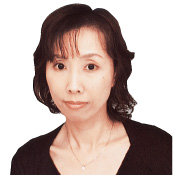GC 90th Anniversary and GC Membership Society 55th Anniversary The Third International Dental Symposium
Date : October 22, (Sat) and 23 (Sun), 2011 Place : Tokyo International Forum (Marunouchi, Chiyoda-ku, Tokyo, Japan) Main Subject : Perspective on Future Aspects of Dentistry
- The Third International Dental Symposium
- GC seminar special program
GC seminar special program 2011/10/23 (Sun)
We will host a special program for this symposium with the lecturers from the GC seminar as guests. The GC seminar is held regularly with many participants.
For Dental Hygienists
Preoperative and postoperative management in dental implant treatment - Infection control and maintenance -, Lecuture 9:00 - 12:00
Compared with periodontal tissues, the composition and structure of the soft tissues are weaker around a dental implant. In order to maintain the dental implant in a satisfactory condition over a long period, early detection and early treatment of peri-implant inflammation are important. Therefore, we as dental hygienist are required to observe the state of the peri-implant mucosa closely at all times and detect peri-implant inflammation at an early stage. In this seminar, I will discuss methods of peri-implant tissue evaluation conducted by the dental hygienist at the clinic and the actual practice of professional care in relation to the preoperative and postoperative management with the objective of preventing peri-implant inflammation.
-
Ms.Miwa Iwasaki
Japan
Dental Hygienist 
Live Tooth Brushing Instruction, Demonstration 9:30 - 11:30 / 13:30 - 15:30 (The same seminar information will be presented in the morning and in the afternoon)
In our research committee, we presented matters regarding TBI (Tooth Brushing Instruction) through many papers and case reports. However, we feel that we have not communicated enough about the consideration for the patients, which is the most important aspect in the actual training opportunities. We considered that the best way to communicate the practical aspects in the training would be for you to actually see the training carried out in the treatment room. For this reason, we planned a seminar in which we will replicate the TBI in the treatment room in the forum venue here in Tokyo. The trainer will be an experienced dental hygienist from the Caries Prevention Society, and TBI will be carried out by a person role-playing a patient who the dental hygienist sees for the first time. Upon seeing this demonstration, we would like to discuss with you the essence of training.
-
Dr.Tomoyuki Imamura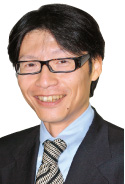
Japan
Dentist -
Ms.Yukiko Hirai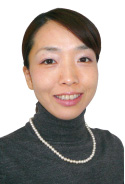
Japan
Dental Hygienist -
Ms.Yukie Imamura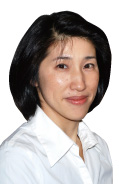
Japan
Dental Hygienist
Other session speakers : The Yokohama Institute of Dentistry Members, etc.
PTC and its effects for individual cases, Demonstration 9:30 - 11:30 / 15:00 - 17:00 (The same seminar will be presented in the morning and in the afternoon)
Currently, PTC is a necessary technique in professional care for infection control in caries and periodontal diseases. The key to this technique lies in personalized care with attention to detail, and this aspect depends on the skills of dental professionals. In this seminar, we will present the actual cases of PTC and their effects and discuss professional care with consideration for the risks and backgrounds of each patient. Also, we will conduct demonstrations on a method of PTC that does not damage the tooth surface and gingiva and the points to note in regards to practical techniques, and we will answer any questions or inquiries you may have.
-
Ms.Eiko Hatano
Japan
Dental Hygienist 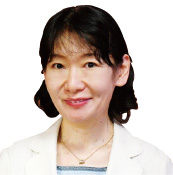
Try it now! Basic training for improvement of oral functions, Demonstration 12:30 - 14:30
When people say they hope to live their daily life happily, how mouths, which they use without really being conscious of it, perform "like a mouth" becomes a major issue. The happiness of eating, having conversions, and smiling... In addition, the various effects of these activities on the brain and the stimulation of salivary secretion, which is essential to bodily health, all link strongly to "the energy for living," I believe that we, as professionals of this important organ called the mouth, must not forget to communicate strongly to our patients in regards to being aware of maintaining the organic aspects of the oral cavity, as well as the decrease in oral functions due to illness, aging, or disuse syndrome.
-
Ms.Fusako Sugiyama
Japan
Dental Hygienist 
Instrumentation one level higher, Demonstration 9:30 - 11:30 / 15:00 - 17:00 (The same seminar information will be presented in the morning and in the afternoon)
Scaling and root planing are the most basic and important treatments in periodontal practice. However, it is often difficult to conduct instrumentation to fit each patient or each tooth, and dental hygienists conducting periodontal treatment are required to have knowledge of periodontal diseases and treatments, as well as improved scaling and root planing techniques. This seminar will focus on the instruments that need to be used by dental hygienists for success in periodontal treatment, from basic handling to higher level operations.
-
Ms.Yukari Kagiwada
Japan
Dental Hygienist 